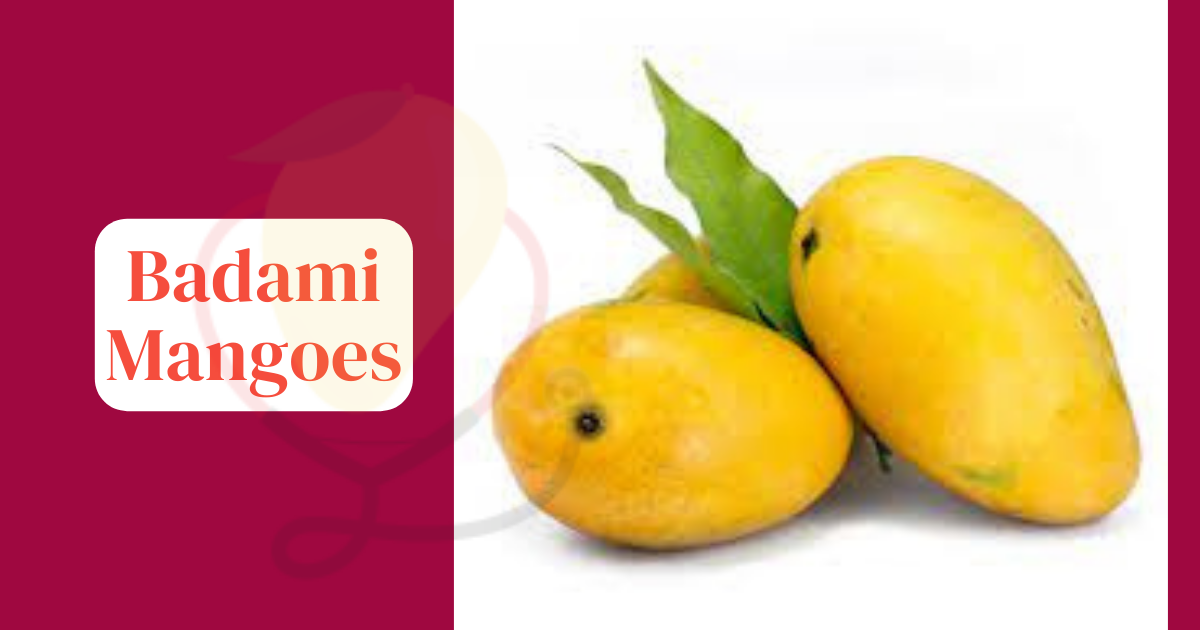Badami mangoes also known as Alphonso mangoes. It is a type of mango that grown in the Indian subcontinent. [1]
Badami mangoes are small to medium-sized and have a distinctive oblong shape.
They are characterized by their bright yellow skin with small white dots and their juicy, fiber less flesh.
In this article, we will explore about Badami mangoes, including their origin, taste, nutritional benefits.
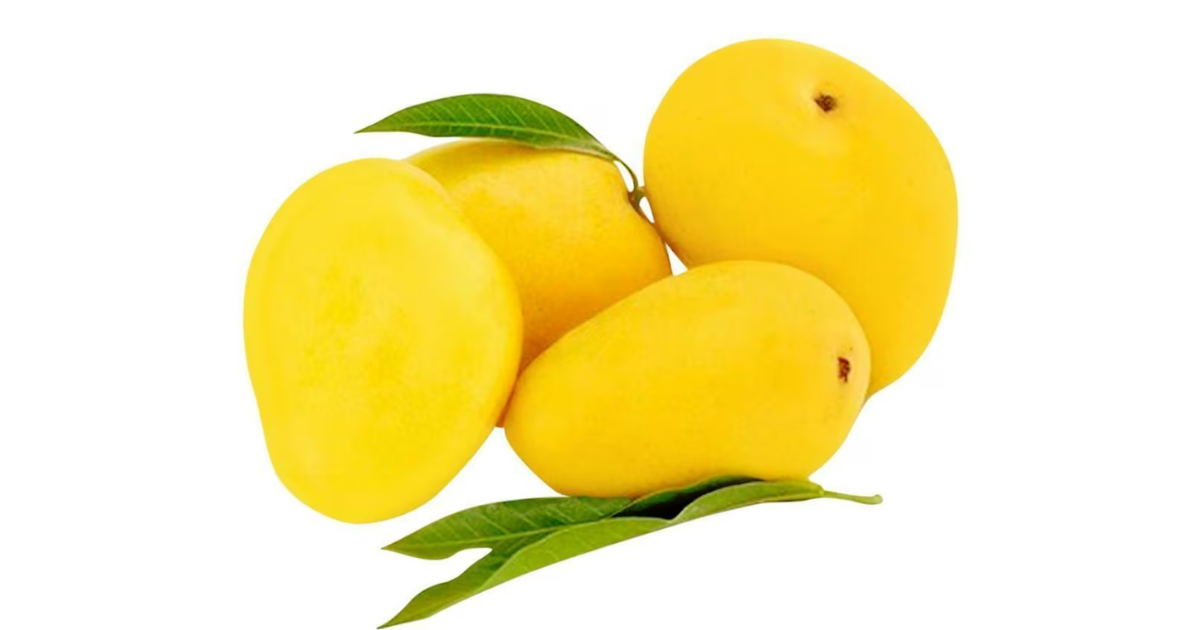
Origin of Badami mangoes
Badami mangoes, also known as Alphonso mangoes, are believed to have originated in the Ratnagiri district of Maharashtra, India.
Badami mangoes are highly prized for their sweet, aromatic flavor and juicy texture, and are considered to be one of the best varieties of mangoes in the world.
The mango is so popular in India that it is often referred to as the “king of fruits” and has been celebrated in literature, music, and art for centuries.
Today, Badami mangoes are grown in various regions of India, including Maharashtra, Karnataka, and Gujarat, and are exported to countries around the world.
Characteristics of Badami mango
Badami mango is a variety of mango that is known for its distinct characteristics. Here are some of the characteristics of Badami mango.
Shape
Badami mango is generally small to medium-sized and is slightly oval in shape.
Color
The skin of Badami mango is pale yellow to orange in color with a slight reddish tinge.
Texture
The texture of the flesh is soft and juicy, with a fibrous texture. It has a creamy consistency and is not very stringy.
Taste
Badami mango has a sweet, rich, and slightly tangy flavor. It has a distinctive aroma and a slightly nutty taste.
Ripening
Badami mango ripens early and is one of the first mango varieties to hit the market.
Availability
Badami mango is mostly found in the southern parts of India, especially in Karnataka.
Shelf life
The shelf life of Badami mango is relatively short and it is best consumed within a few days of ripening.
Taste and Texture of Badami Mangoes
Badami mangoes are known for their unique flavor, which is a combination of sweetness and tanginess.
They have a creamy texture and a melt-in-your-mouth consistency that makes them an irresistible summer treat.
The flesh of Badami mangoes is soft and smooth, making it easy to eat and digest.
Nutritional Values of Badami Mangoes
Badami mangoes are not only delicious but also packed with essential vitamins and minerals. [2]
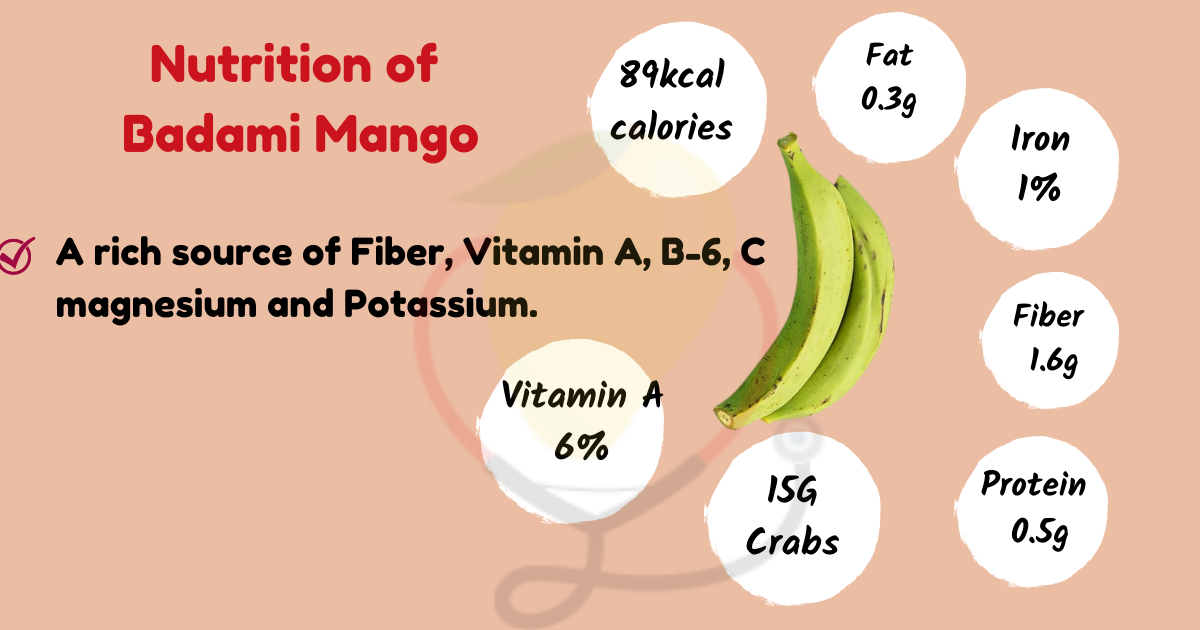
- Energy: 60 kcal
- Carbohydrates: 15 g
- Protein: 0.5 g
- Fat: 0.3 g
- Dietary fiber: 1.6 g
- Vitamin A: 6%
- Vitamin C: 50%
- Vitamin E: 8%
- Vitamin K: 4%
- Potassium: 4%
- Magnesium: 2%
- Calcium: 1%
- Iron: 1%
Health benefits of Badami Mangoes
Badami mangoes offer a variety of health benefits due to their high nutrient content.
Here are some of the health benefits of Badami mangoes.
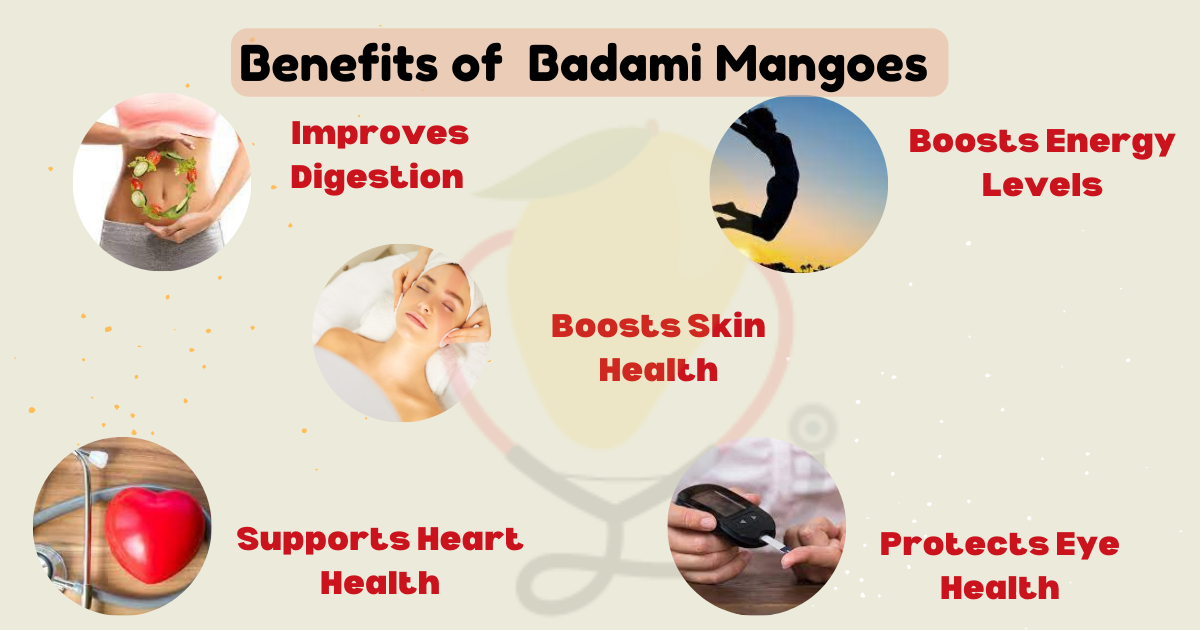
1: Boosts Immune System
Badami mangoes are packed with vitamin C, which is essential for boosting the immune system. [3]
Vitamin C helps to protect the body from harmful pathogens and strengthens the immune system’s response to infection.
2: Promotes Digestion
Badami mangoes are a good source of dietary fiber, which helps to promote good digestion and prevent constipation. [4]
Eating fiber-rich foods like Badami mangoes can also help to regulate blood sugar levels and reduce the risk of developing type 2 diabetes.
3: Protects Eye Health
Badami mangoes are rich in vitamin A, which is essential for maintaining healthy vision. [5]
Vitamin A helps to protect the eyes from damage caused by free radicals and can reduce the risk of developing age-related macular degeneration.
4: Supports Heart Health
Badami mangoes are low in fat and high in fiber, making them an excellent choice for promoting heart health. [6]
The high levels of potassium and magnesium in Badami mangoes can also help to regulate blood pressure and reduce the risk of developing heart disease.
5: Boosts Skin Health
Badami mangoes are a rich source of vitamin E, which is essential for maintaining healthy skin. [7]
Vitamin E helps to protect the skin from damage caused by free radicals and can reduce the appearance of fine lines and wrinkles.
Recipes
Sure, here are three different recipes using mangoes.
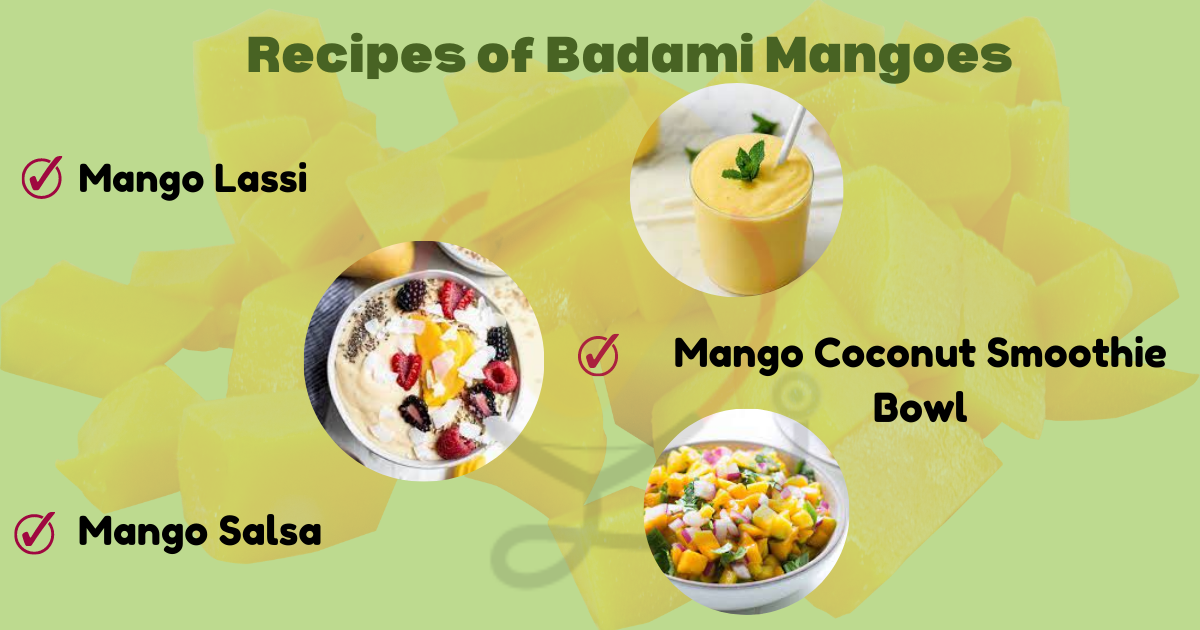
- Mango Lassi
- Mango Salsa
- Mango Coconut Smoothie Bowl
Badami mangoes are a delicious and nutritious summer fruit that is well worth trying.
With their unique flavor and texture, Badami mangoes are a favorite among mango lovers around the world.
They are not only tasty but also packed with essential vitamins and minerals that promote good health.
Whether eaten as a whole fruit or used in cooking and baking, Badami mangoes are a versatile ingredient that adds a sweet and tangy flavor to any dish.
So, the next time you are looking for a healthy and tasty summer treat, reach for a Badami mango and enjoy all the benefits this amazing fruit has to offer.
FAQs
What is the best way to store Badami mangoes?
Badami mangoes should be stored at room temperature until they are ripe, and then they can be stored in the refrigerator for up to five days.
Are Badami mangoes organic?
Badami mangoes are grown using sustainable farming practices that minimize the use of pesticides and fertilizers, but they may not be certified organic.
What is the nutritional value of Badami mangoes?
Badami mangoes are a rich source of vitamins A, C, and E, as well as potassium, magnesium and fiber.
Can I use Badami mangoes in savory dishes?
Yes, Badami mangoes are a great ingredient for savory dishes, including chutneys, sauces, and marinades. They add a sweet and tangy flavor to curries, stir-fries, and rice dishes.

